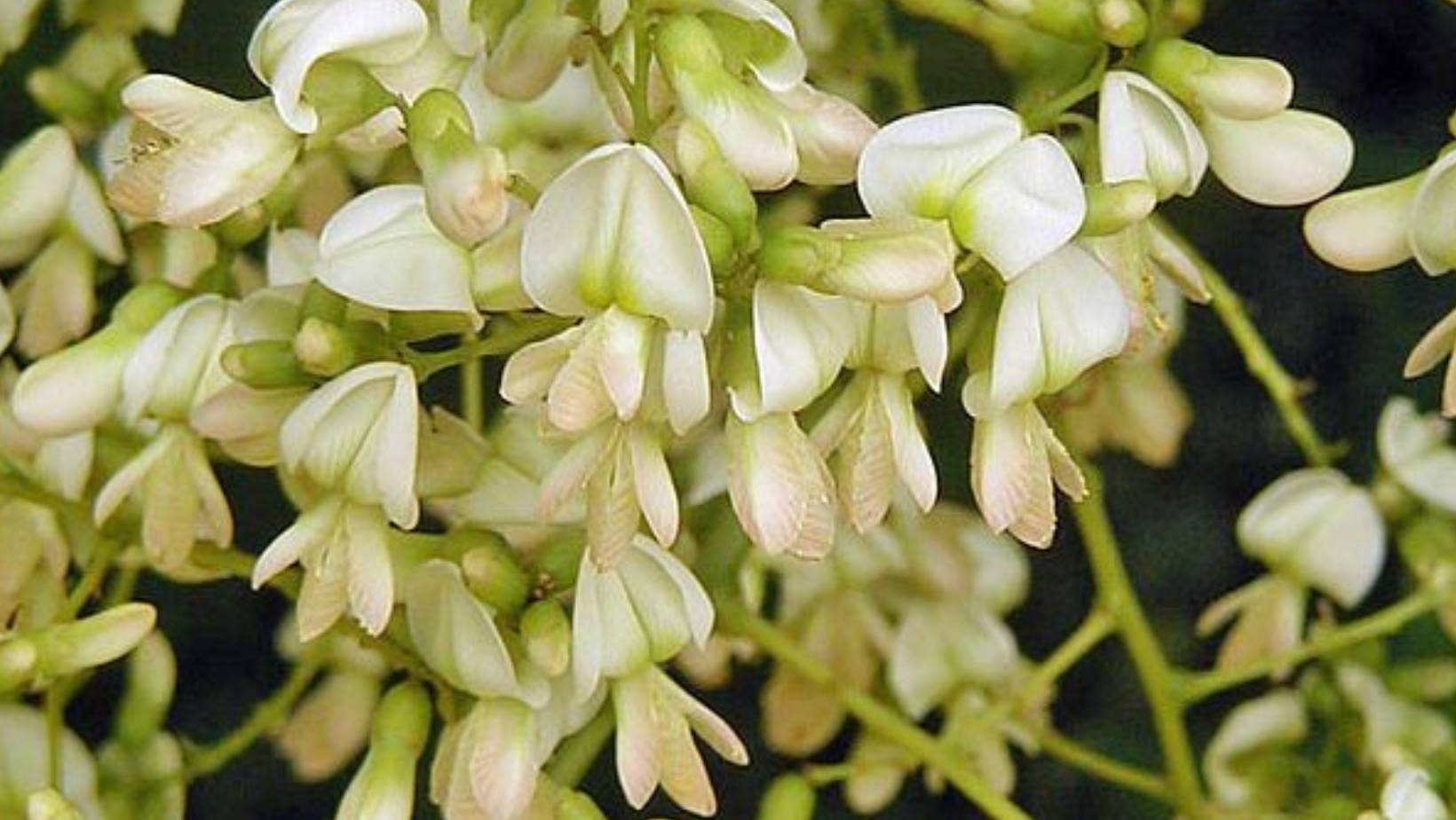The Healing Power of Quercetin: Unraveling the Medicinal Potential of Sophora Japonica
The Healing Power of Quercetin: Unraveling the Medicinal Potential of Sophora Japonica
Nature has always been a treasure trove of healing wonders, and one such gem is hidden in the buds of the Sophora japonica tree. In this article, we'll explore the medicinal properties of the Sophora japonica bud, with a spotlight on its prized component, quercetin, and its potential as an antiviral superhero against threats like COVID-19 and influenza.
Sophora Japonica: An East Asian Treasure
The Sophora japonica tree (Styphnolobium japonicum), commonly known as the Japanese pagoda tree, is cultivated worldwide but is native to East Asia, particularly Korea, China, and Japan. It holds significance in various contexts including as a cherished Chinese and Japanese cultural symbol of beauty, longevity, wisdom, and education. In traditional medicine, the tree has long been valued for its potent antioxidant and anti-inflammatory characteristics, used to treat a wide array of disorders and diseases. It also provides value as a beneficial landscaping component with its capacity to enrich the environment, promote pollination, and enhance aesthetics.1
The Sophora japonica is known for its delicate cream-colored flowers and distinctive buds. These buds, often overlooked, contain a variety of beneficial bioactive compounds that have made it a valued herb in traditional Chinese medicine for centuries. One compound responsible for this bud’s potent medicinal quality is its rich supply of quercetin, a powerful plant pigment, or flavonoid, known for its wide range of health benefits.
Traditional Medicinal Uses for Sophora Japonica2:
v Hypertension
v Arteriosclerosis
v Headaches
v Dizziness
v Blood in the Urine and Stool
v Skin Infections
v Uterine and Intestinal Hemorrhage
v Hemorrhoids
v Dysentery
v Conjunctivitis
Quercetin: A Natural Panacea
Quercetin is a natural plant component found in various fruits, vegetables, and grains, but the Sophora japonica bud is a particularly rich source and why Dr. Zelenko selected this plant as an ideal source for quercetin in his Z-Stack immune support formula. This compound is considered a panacea in medicine, a type of ‘cure-all’ benefiting a wide array of health conditions, but it has gained extra attention in the last few years for its potential to combat viruses, particularly SARS-CoV-2, the viral bioweapon that causes COVID-19, making it a star in the world of natural medicine.
Common Natural Sources of Quercetin3,4,5:
v Apples
v Capers
v Red Onions and Shallots
v Wholegrains
v Buckwheat
v Cruciferous and Leafy green vegetables
v Beans and Legumes
v Cocoa
v Grapes and Grape Juice
v Tomatoes
v Citrus fruits – i.e.: oranges and lemons
v Dark berries – i.e.: blackberries, blueberries, and elderberry
v Red wine
v Herbs – i.e.: Parsley, Sage, Ginkgo biloba, St. John’s Wort
v Tea
v Olive oil
v Dark cherries
Medicinal Benefits of Quercetin6,7,8,9,10,11,12:
v Antioxidant – Neutralizes damaging reactive molecules known as ‘free-radicals’ that cause cellular damage and contribute to physiological imbalances and disease.
v Anti-Inflammatory – Helps reduce systemic inflammation associated with a variety of health conditions including arthritis, autoimmune, and inflammatory bowel disorders.
v Antiviral – Potential to inhibit the replication and progression of certain viruses including SARS-CoV-2, Influenza, respiratory syncytial virus (RSV), Herpes Simplex Virus (HSV), and HIV.
v Antibacterial – Shown to act as a natural antimicrobial agent against various bacterial strains, including drug-resistant strains particularly of the urinary, gastrointestinal, respiratory, and integumentary system.
v Anti-allergic – Known to help alleviate seasonal allergy symptoms such as runny nose, hives, watery eyes, and swelling of the face due to antihistamine effects.
v Immune Support – Helps balance, regulate, and enhance immune function and response as needed.
v Cardiovascular Support – Shown to help lower blood pressure, reduce cholesterol, and improve overall cardiovascular health lowering risks of heart disease.
v Neuroprotective Effects – Helps mitigate negative effects of stress and inflammation on the brain to effectively prevent or manage neurodegenerative disorders like Parkinson’s Disease, dementia, or Alzheimer’s.
v Cancer Prevention – Potential to induce cancer cell death and reduce cell growth and proliferation in cancers such as lung, breast, cervical, lung, prostate, and colon.
A Natural Guardian Against COVID-19 and Influenza
With flu and cold season in full swing, having access to natural, safe, and effective anti-viral agents may be your ticket to avoiding illness this Fall and Winter. Research shows that quercetin can act as a natural, safe, and effective defender against viral respiratory diseases like COVID-19 and the flu. Studies continue to show promise for this potent flavonoid, indicating that quercetin may interfere with the entry and replication of these viral pathogens or bioweapons, potentially reducing their impact on the body and shortening the time of infection.
With regular supplementation of quercetin, either through diet or formulated sources like Dr. Zelenko’s Z-Stack, you can help support the body’s immune system and bolster its effect against invading pathogens like influenza or SARS-CoV-2 keeping disease at bay while promoting systemic balance and health. By modulating immune responses, acting as an antioxidant and antiviral, quercetin helps fortify the body's natural defenses, keeping it resilient in the face of infections.
Fight Disease with Nature
The Sophora japonica bud, with its heavy concentrations of the natural powerhouse quercetin, emerges as a potential ally in the fight against a wide array of disorders including those caused by viral invaders like COVID-19 and the flu. With proper supplementation, quercetin allows us to harness nature's panacea superhero to strengthen our own defenses and fight disease. Be prepared this season to fight illness naturally by including quercetin into your healthcare regimen.
Medical Disclaimer: The content in this article should not be taken as medical advice or used as a direct recommendation for any treatment or medication. Always consult with a properly licensed healthcare provider before making any changes to your current health and wellness routine.
References:
1. Japanese Pagoda Tree. (n.d.). SUNY Orange County Community College. Retrieved from: https://sunyorange.edu/inttreetour/sophora_japonica.html
2. Bai, Y., & et al. (2016, July 1). Local and traditional uses, phytochemistry, and pharmacology of Sophora japonica L.: A review. Journal of Ethnopharmacology, 187. Retrieved from: https://doi.org/10.1016/j.jep.2016.04.014
3. Quercetin. (n.d.). Mount Sinai. Retrieved from: https://www.mountsinai.org/health-library/supplement/quercetin
4. Levy, J. (2023, September 6). Quercetin: a Superfood Antioxidant that Benefits the Body in Many Ways. Dr. Axe: Ancient Nutrition. Retrieved from: https://draxe.com/nutrition/quercetin/
5. Boye, K. (2023, February 21). Where Can I Find Quercetin in Foods? Gaia Herbs. Retrieved from: https://www.gaiaherbs.com/blogs/seeds-of-knowledge/where-can-i-find-quercetin-foods
6. Di Petrillo, A., Fais, A., Fantini, M. C., & Orru, G. (2022, January). Quercetin and its derivates an antiviral potentials: A comprehensive review. Phytotherapy Research, 36(1): 266-278. Retrieved from: https://doi.org/10.1002%2Fptr.7309
7. Alimohammadi-Kamalabadi, M., & et al. (2023, September 26). The effect of quercetin supplementation on clinical outcomes in COVID-19 patients: A systematic review and meta-analysis. Food Science & Nutrition. Retrieved from: https://doi.org/10.1002/fsn3.3715
8. Arabyan, E., Oo, A., Zakaryan, H., & Zandi, K. (2017, May 25). Flavonoids: promising natural compounds against viral infections. Archives of Virology, 162: 2539-2551. Retrieved from: https://doi.org/10.1007/s00705-017-3417-y
9. Bhattacharya, D., & Nguyen, T. L.. (2022, April). Antimicrobial Activity of Quercetin: An Approach to Its Mechanistic Principle. Molecules, 27(8): 2494. Retrieved from: https://doi.org/10.3390%2Fmolecules27082494
10. Mistry, B. M., & et al. (2018, July). Therapeutic potential of quercetin as a cardiovascular agent. European Journal of Medicinal Chemistry, 155. Retrieved from: https://doi.org/10.1016/j.ejmech.2018.06.053
11. Chiang, M. C., Tsai, T. Y., & Wang, C. J. (2023, April). The Potential Benefits of Quercetin for Brain Health: A Review of Anti-Inflammatory and Neuroprotective Mechanisms. International Journal of Molecular Sciences, 24(7): 6328. Retrieved from: https://doi.org/10.3390%2Fijms24076328
12. Asgharian, P., & et al. (2022, August 15). Potential mechanisms of quercetin in cancer prevention: focus on cellular and molecular targets. Cancer Cell International, 22. Retrieved from: https://doi.org/10.1186/s12935-022-02677-w


Leave a comment